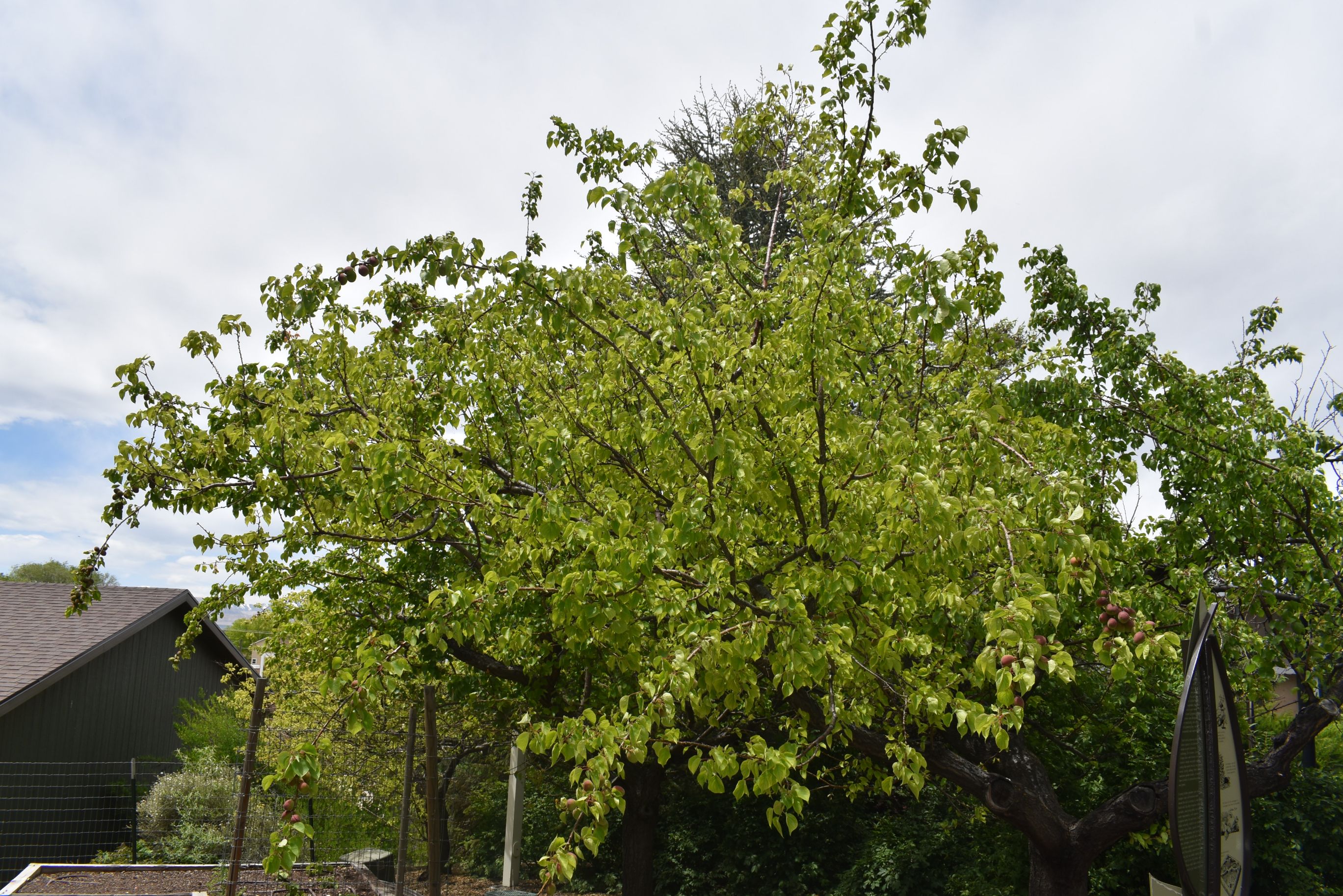Plant Details:
Plant Type: Deciduous Tree
Plant Family: Rosaceae
Plant Description: Small, deciduous, fruit-bearing tree. White flowers appear in spring followed by golden-yellow fruitwith a red blush. Can be used in jams and jellies and preserved by canning or drying. Apricots tend to tolerate very dry situations but produce the best fruit with plenty of water and with proper maintenance.
Maintenance:
Maintenance Type: Tree - Fruit
Plant Care: Tree - Fruit (single-stemmed woody plants cultivated for their edible fruit): Prune regularly to promote health, provide air circulation, maintain a desirable shape, and to remove dead or damaged branches. Pruning is best done in late winter to early spring. Pruning techniques vary depending on tree species. Understand the needs of each tree type before pruning.
Provide adequate water and nutrients to aid in fruit development. Thin fruit as necessary to avoid excessive stress on the tree, especially on apple and peach trees.
Fruit trees will require pest control to reduce damage to fruit and to keep the tree healthy. Find out the appropriate pest control methods for the species before attempting to control pests.
Plant Attributes:
Mature Size: 15-30' tall x 15-20' wide
Utah Native: No
Plant Select: Unknown
Pollinator Friendly: Yes
Localscapes: Tree, Perimeter Plant
Foliage Interest: No
Foliage Colors: Green
Bloom Colors: White
Bloom Seasons: Early Spring
Bloom Period: Mar - Apr
Growing Conditions:
Hardiness Zone: 4 to 9
Light Requirement: Full Sun (6+ hrs sun)
Irrigation Requirement:  Low (1/2" every 10-14 days)
Low (1/2" every 10-14 days)
 Low (1/2" every 10-14 days)
Low (1/2" every 10-14 days)
Salt Tolerant: Unknown
Deer Tolerant: Unknown
Garden Location:
-
Design Path
- The Produce Section




